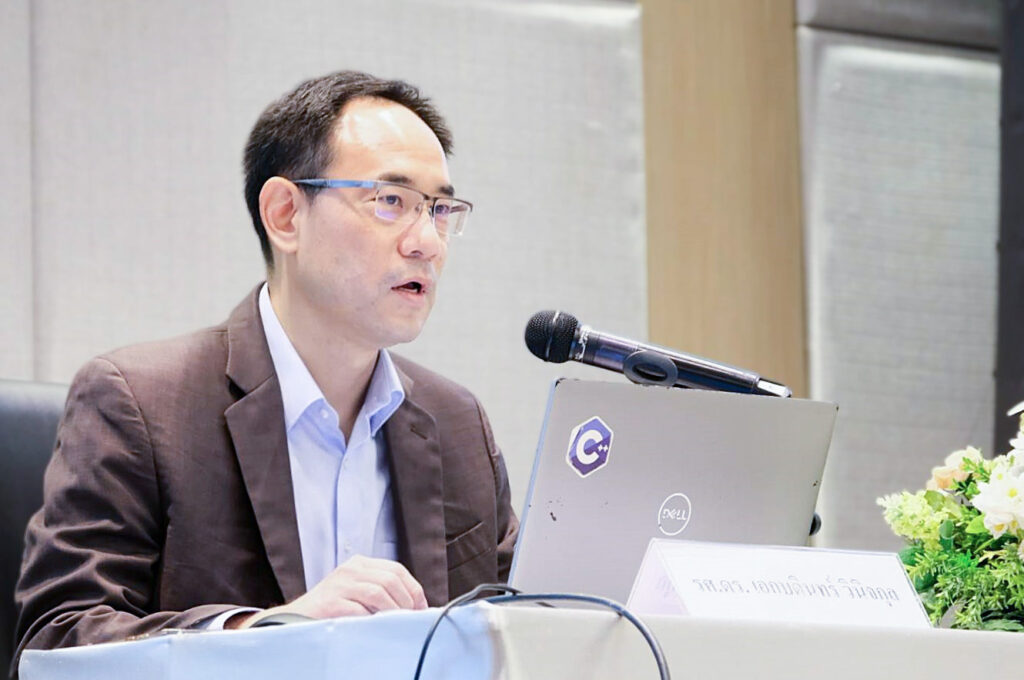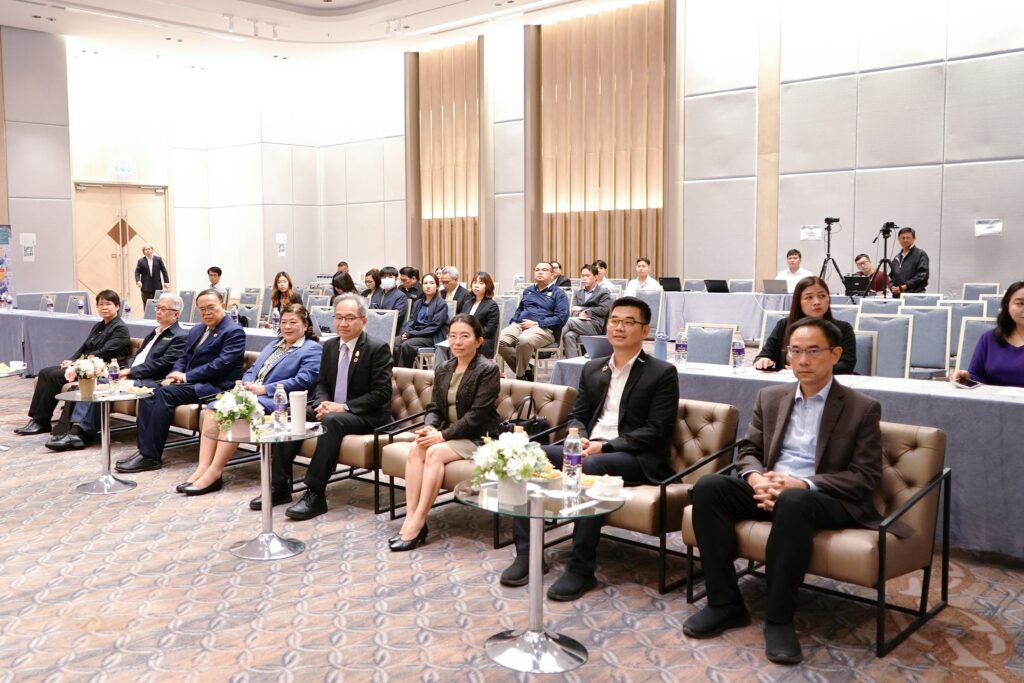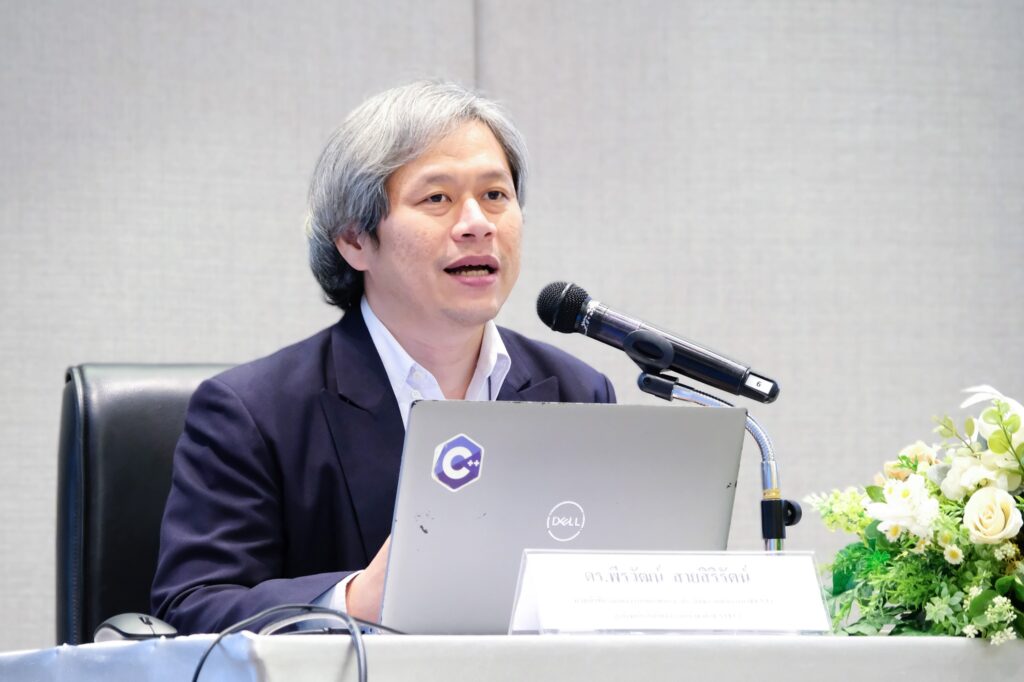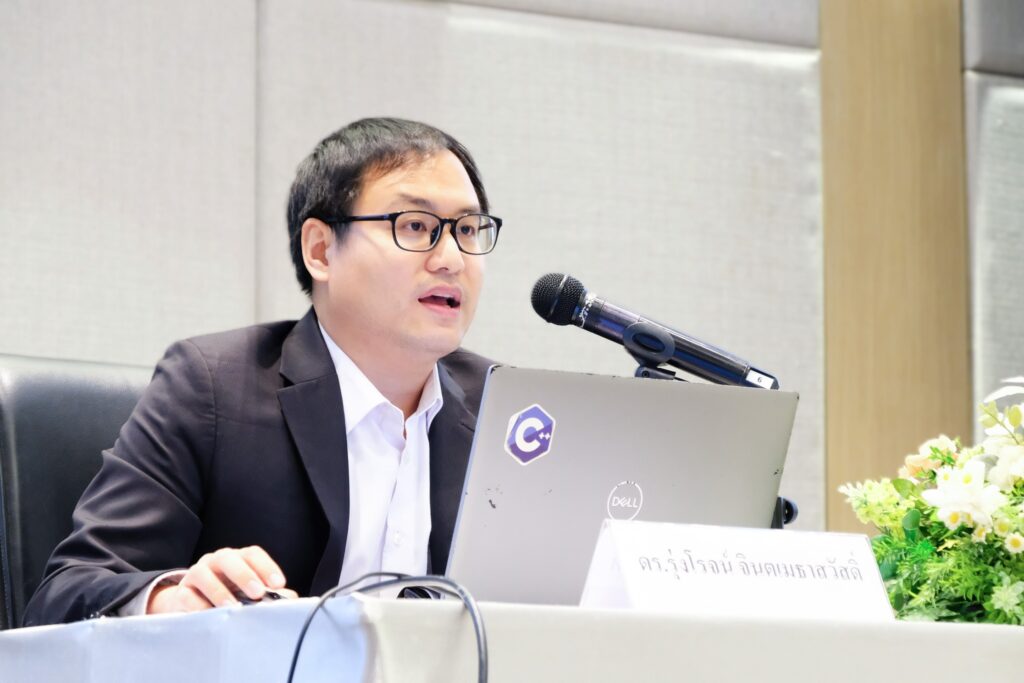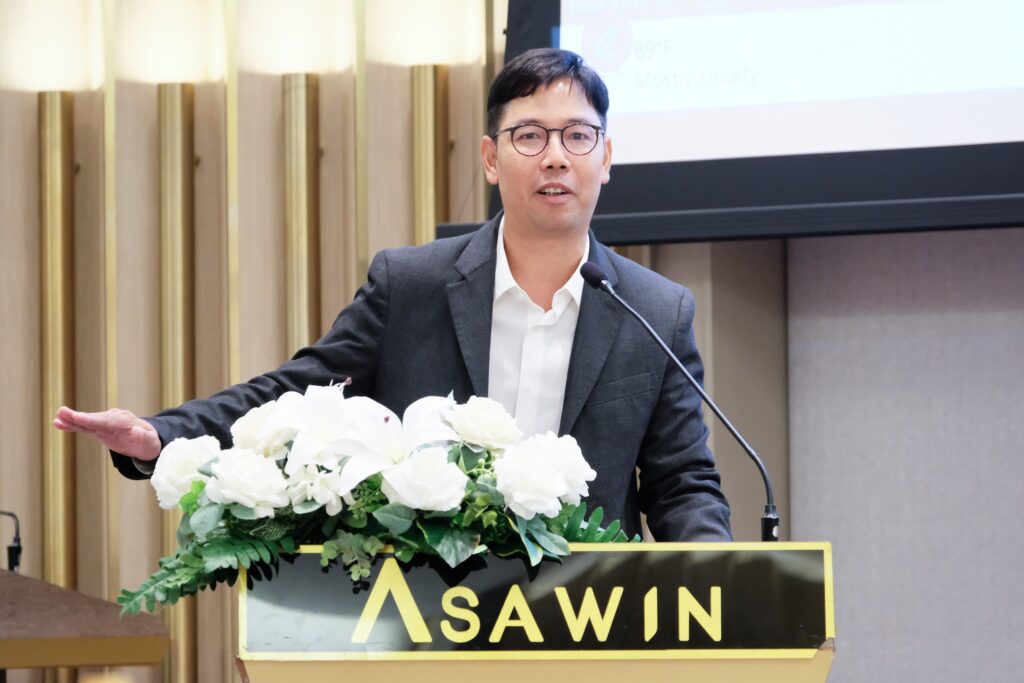On May 7, 2025, at Asawin Grand Convention Hotel, Bangkok
The National Science and Technology Development Agency (NSTDA), under the Ministry of Higher Education, Science, Research and Innovation (MHESI), through the National Energy Technology Center (ENTEC) and the National Electronics and Computer Technology Center (NECTEC), in collaboration with the Asian Institute of Technology (AIT), the National Research Council of Thailand (NRCT), and Thailand Science Research and Innovation (TSRI), held a dissemination meeting on the outcomes of a project focused on the use of technology and innovation to reduce vehicle exhaust-related dust emissions. The objective was to drive research outputs toward practical applications that effectively address air pollution.
The meeting was honored by Dr. Wiparat De-ong, Executive Director of NRCT, who presided over the opening ceremony, with Prof. Dr. Sukit Limpijumnong, NSTDA President, delivering a report on the project’s key outcomes. These included a computer vision-based system for measuring the opacity of vehicle exhaust smoke, presented by Assoc. Prof. Dr. Ekbordin Winijkul, and a platform for data processing, visualization, and management developed for screening and monitoring high-emission target vehicles, especially diesel-powered pickup trucks and freight trucks. This work was presented by Dr. Mati Horprathum and Dr. Rungroj Jintamethasawat. Additionally, the progress in applying CCTV systems in Bangkok’s Low Emission Zone (LEZ) policy to address PM2.5 was presented by Dr. Nuwong Chollacoop. Recommendations for enhancing law enforcement and policy support measures were proposed by Dr. Peerawat Saisirirat.
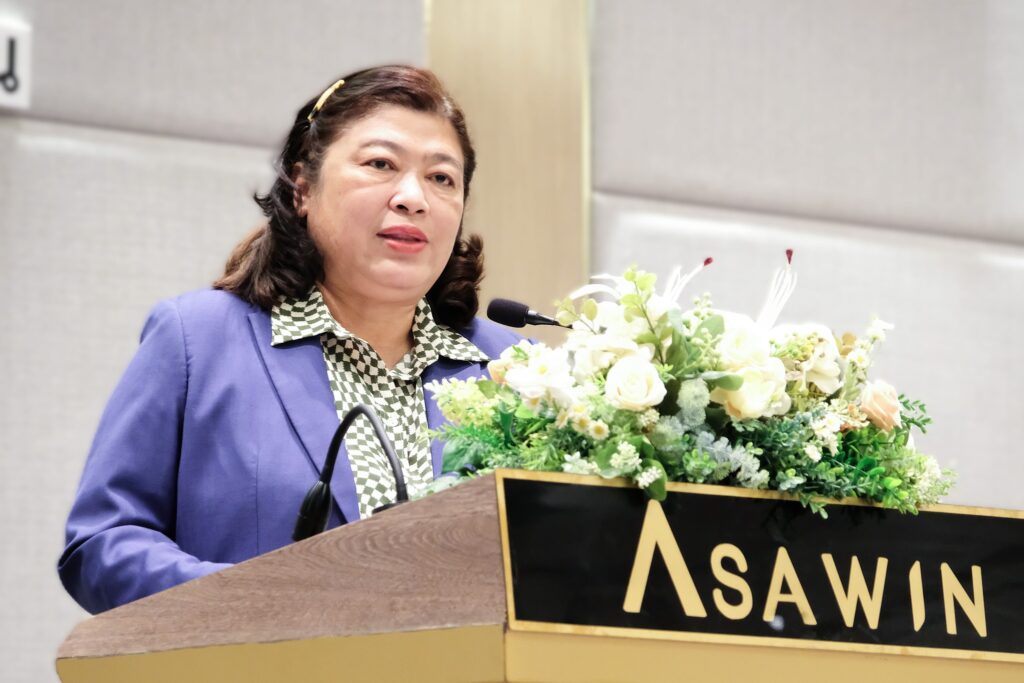
Dr. Wiparat De-ong, Executive Director of NRCT, emphasized that the PM2.5 air pollution problem, which exceeds air quality standards, must be addressed through comprehensive prevention and mitigation to reduce its impacts on public health, the environment, and the economy. The NRCT supports the application of technology and innovation to address fine particulate matter (PM2.5) under the P24 program for urgent national crisis response. The program emphasizes integrated support for research and innovation across key emission sources in target areas, including transportation emissions, open burning and forest fire management, transboundary pollution, policy development, proactive communication, and the use of big data systems to support decision-making. These efforts aim to contribute to the national agenda on solving dust pollution, led by the Pollution Control Department. In terms of transportation emissions, the urgent target areas include Bangkok and surrounding provinces with high traffic density. A key approach is leveraging technology and innovation to reduce emissions from road transportation by developing systems for screening and monitoring high-emission vehicles and designing management models suited to local PM2.5 pollution levels.
This meeting served as a valuable platform for exchanging experiences among implementing agencies regarding Bangkok’s Low Emission Zone policy. It included presentations on the project background and importance, progress in CCTV-based LEZ implementation, and efforts to translate research outcomes into practical solutions that benefit government agencies, the private sector, and academic institutions. The goal is to concretely support PM2.5 mitigation efforts.
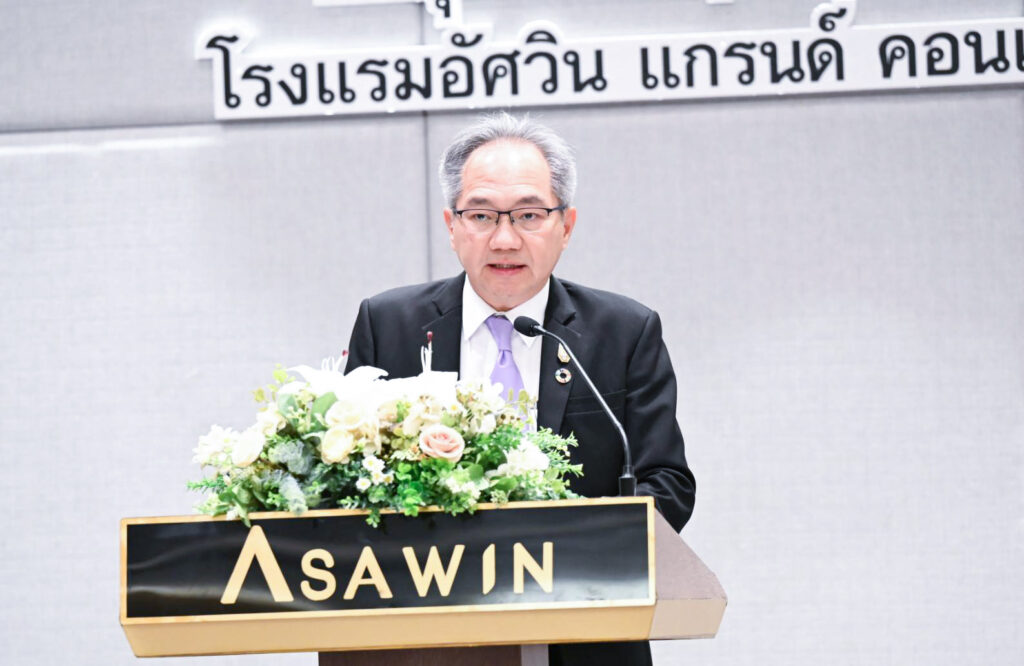
Prof. Dr. Sukit Limpijumnong, NSTDA President, stated that diesel vehicles are a major source of black smoke and PM2.5 emissions, particularly in Bangkok and surrounding areas with heavy traffic congestion. This project aims to develop a smoke detection system using computer vision and a data platform for processing and visualizing emissions information. The system will screen and monitor diesel vehicles emitting black smoke and provide an overview of transportation-related pollution. Additionally, it compiles methodologies for identifying and tracking target vehicles for integration with existing measures, such as Bangkok’s LEZ policy and the Traffy Fondue platform. Recommendations for improving law enforcement and policy support were also presented. The project’s outcomes are expected to enhance the efficiency of law enforcement and control measures for high-emission vehicles without disrupting normal traffic flow.
The success of this project results from the integration of expertise and collaboration across multiple sectors, along with coordination with relevant authorities. These efforts aim to transform research into actionable solutions that effectively address air pollution, reduce PM2.5 and associated carcinogens in the atmosphere, and ultimately improve public health and quality of life.
